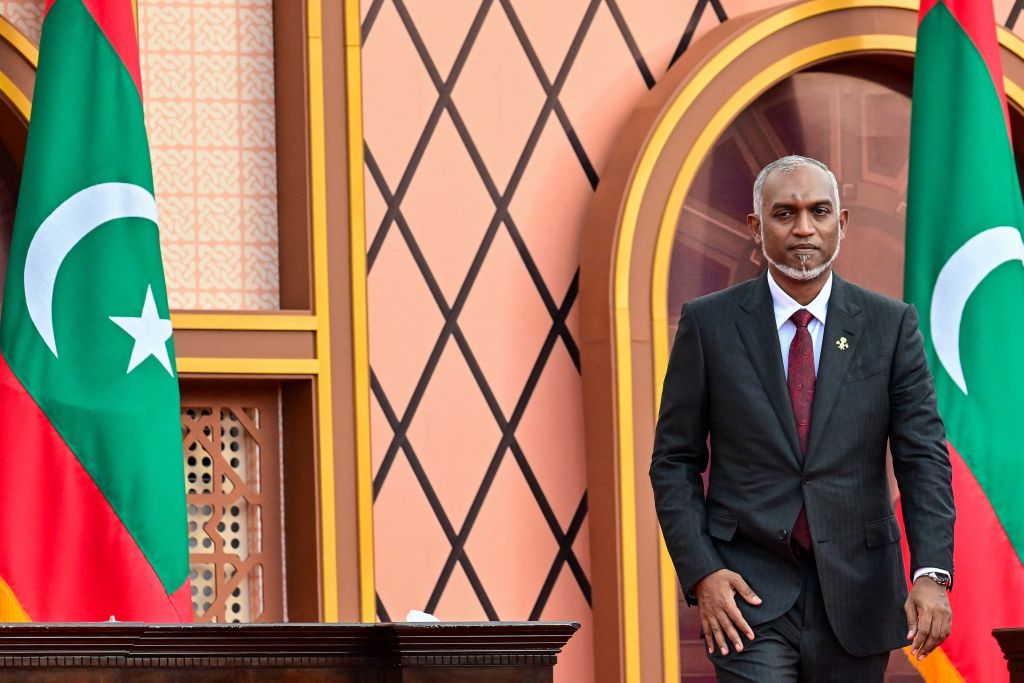Think of the Maldives and you’re likely to conjure up images of expensive honeymoons and golden beaches, but the archipelago is also the focus of an extraordinary spat with India. The Maldives’ high commissioner was summoned by the Indian government last week after three Maldivian deputy ministers published derogatory posts on X/ Twitter, labelling Indian prime minister Narendra Modi a ‘terrorist’, ‘clown’ and ‘puppet of Israel’. One message even compared India to cow dung.
The fallout from this imbroglio has been swift. The trio were suspended and the posts have now been deleted. But India is furious: the hashtags #BoycottMaldives and #ExploreIndianIslands have been trending and there have been reports of a significant drop in holiday bookings. One of India’s largest travel platforms has even suspended flights to the islands ‘indefinitely’. For the tourism-dependent Maldives, the backlash is likely to cost many millions.
It is becoming obvious that India will struggle to match China’s growing influence in the Indian Ocean
Indians, along with Russians, have historically been among the largest contingent of tourists to the Maldives: last year, around 209,000 Indians visited the islands. But

Get Britain's best politics newsletters
Register to get The Spectator's insight and opinion straight to your inbox. You can then read two free articles each week.
Already a subscriber? Log in






Comments
Join the debate for just £1 a month
Be part of the conversation with other Spectator readers by getting your first three months for £3.
UNLOCK ACCESS Just £1 a monthAlready a subscriber? Log in